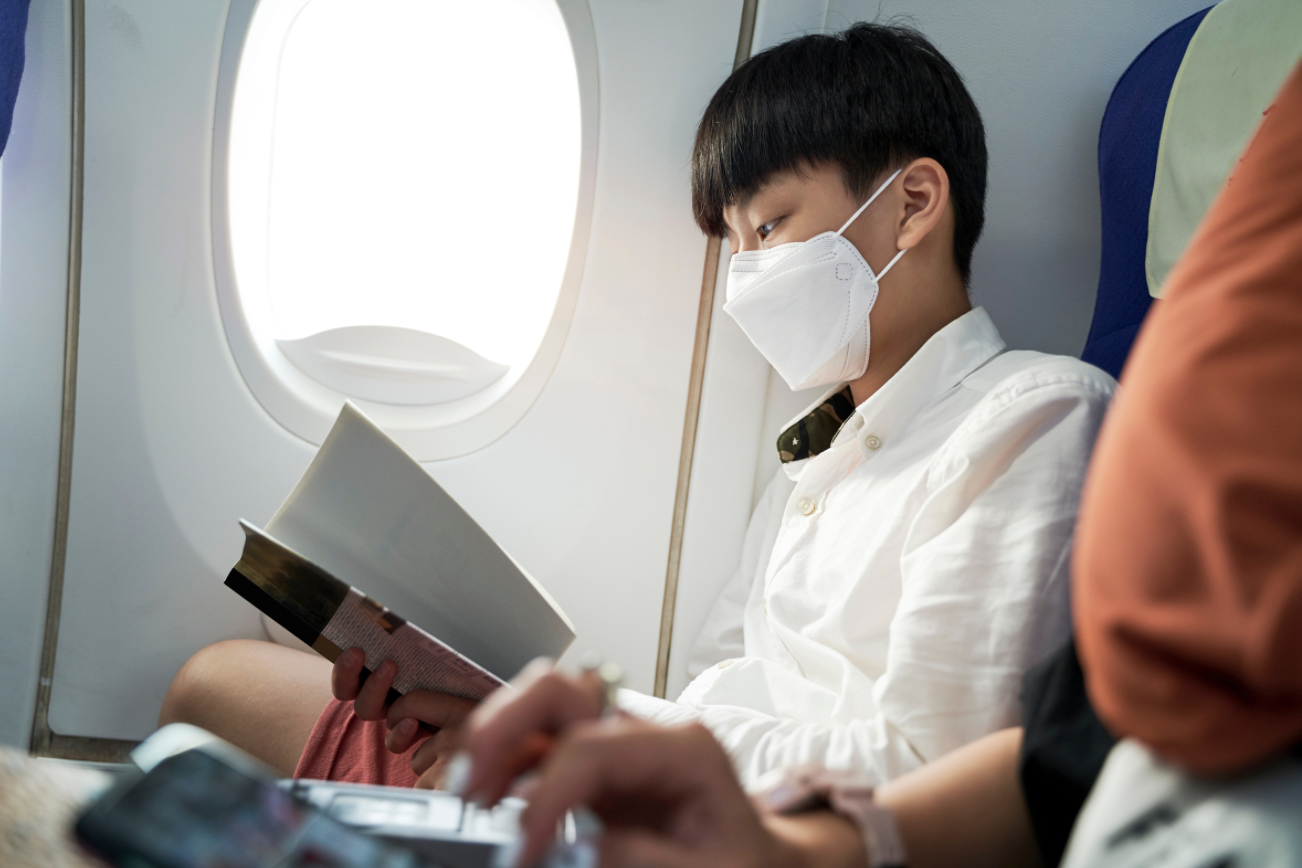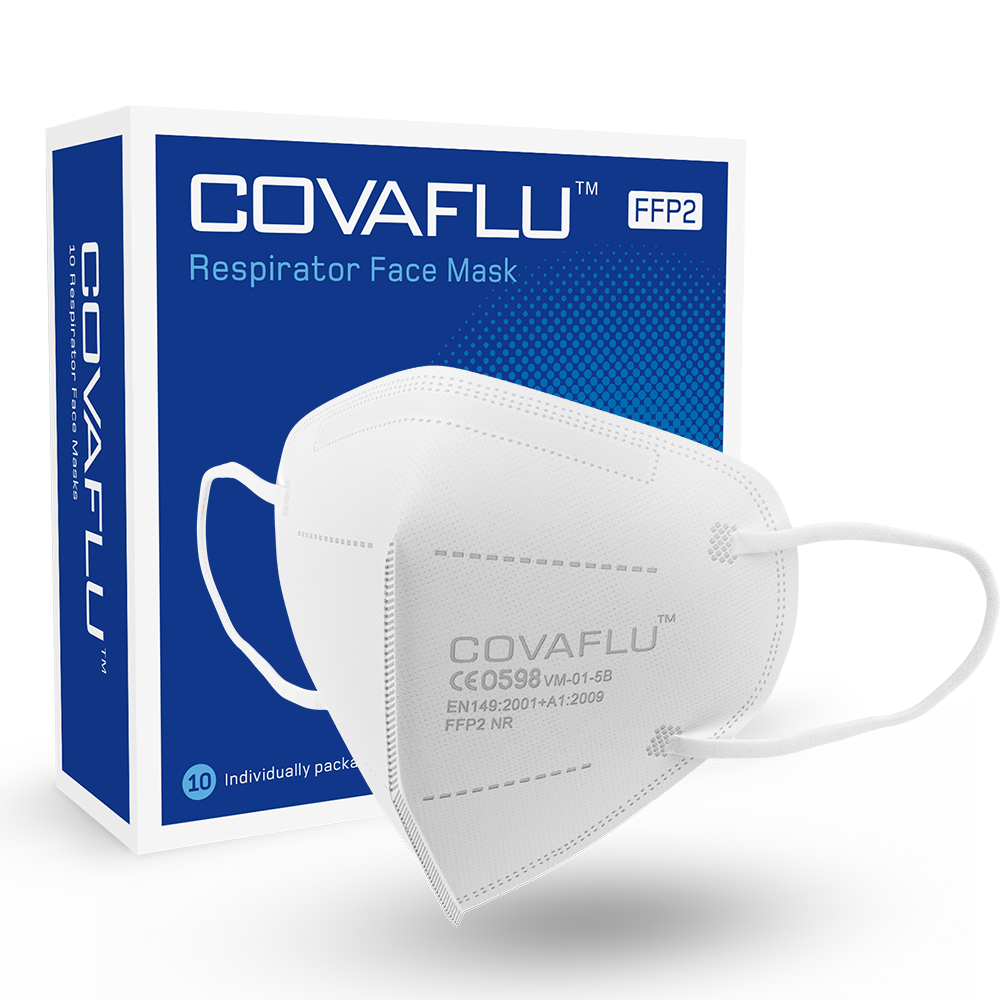
Everything You Need to Know About Travelling Post-pandemic
Recent Government guidelines advise against travelling unless absolutely necessary. However, with effects of the vaccine starting to materialise, and the Government assessment of inbound and outbound travel on the 12th of April.
It certainly feels as though the world is on the right track to return to a new form of normality.
As the world begins to open up most of us will find ourselves needing to use transport in the next coming months, whether it’s making the first trip back into the office or going to see family to re-live a missed Christmas dinner. Wherever you are going, its essential to consider how to stay protected while you travel- there’s no doubt that face masks are here to stay.
What type of face-covering should I wear when I travel?
In the current environment, travelling is, without a doubt, a health risk. Being confined in an enclosed space for the length of your journey, you are increasing the potential exposure time to virus particles in an environment where social distancing is not possible.
Though the current guidance on air travel means that everyone will be required to wear some form of face covering, it does not mandate what kind of face-covering should be worn. This means that others may wear masks that put you at risk (e.g. leaky, loose-fitting masks).
Individuals who do not have a face-covering upon arrival at a UK airport are likely to be provided with a surgical mask. However, as surgical masks are designed to protect against only the largest droplets, splashes, and bodily fluids, they do not guarantee protection against viruses. In order to minimise the risk of contracting the COVID-19 virus while you travel, you could wear an FFP2 respirator face mask, these are designed to fit close to the face and filters at least 94% of airborne particles.
Here’s all you need to know:
Why wear a face covering?
The virus responsible for COVID-19 is transmitted through respiratory droplets, produced by coughing, sneezing, talking, singing, breathing, etc.
Respiratory droplets may be directly transmitted to another individual, or indirectly transmitted through inanimate objects.
A face covering reduces the dispersal of respiratory droplets, so helps reduce the transmission of the COVID-19 virus.
Without a mask, respiratory droplets produced by heavy coughing travel may up to 12 ft.
What types of face coverings are available?
Cloth masks
The quality of cloth masks varies, depending on the material thread count, how much the mask has been used, whether or not there is a filter and the fit of the mask. They may be better or worse than surgical masks but are not as effective as respirator masks. Loosely folded and bandana-style masks provide the least protection, and respiratory droplets travel, on average, 3 ft 7 in (1.09 m) upon coughing. Cloth masks with a higher thread count provide more protection than loosely-folded and bandana-1 style masks.
Medical grade masks
There are two kinds of disposable medical-grade masks: i) surgical masks and ii) respirator masks. Surgical masks are designed to protect people around the wearer. Surgical masks help protect the wearer from the largest droplets, splashes, and bodily fluids, but do not provide filtration protection against smaller droplets. Additionally, surgical masks are loose-fitting, meaning that they may leak on inhalation and exhalation. Upon coughing, respiratory droplets may travel up to 8 in (20 cm).
Respirator masks are designed to help protect the wearer AND people around the wearer.
Respirator masks help protect the wearer from smaller and large droplets and are tight-fitting, meaning that leakage and respiratory droplet dispersion are minimal when the mask is properly fitted and worn. Note that in some European countries these masks are mandatory, make sure to do your research before you travel.
A great option to consider when travelling are, COVAFLU™ Respirator FFP2 Face Masks, a trusted pandemic defence staple since 2007 which help protect against pandemic viruses and other diseases by helping to prevent the virus from entering the body through the mucus membranes of the mouth and nostrils.
Travelling amid a pandemic poses a clear health risk, but by wearing a Covaflu respirator mask you can help protect both yourself and those around you.
The best thing we can do now to reduce the risk to ourselves and others is to follow government guidelines. Advice can change daily, so keep checking this link for updated travel advice: https://www.gov.uk/foreign-travel-advice




